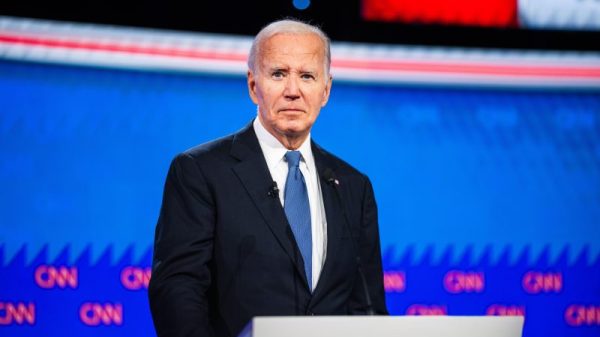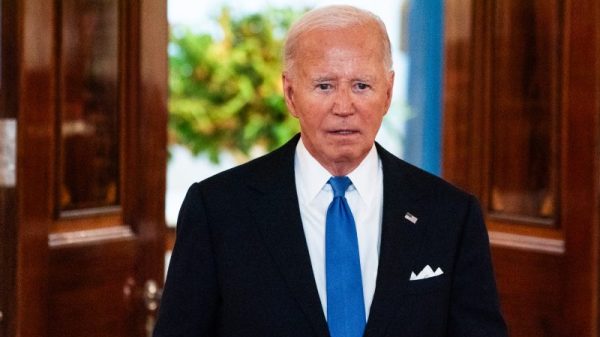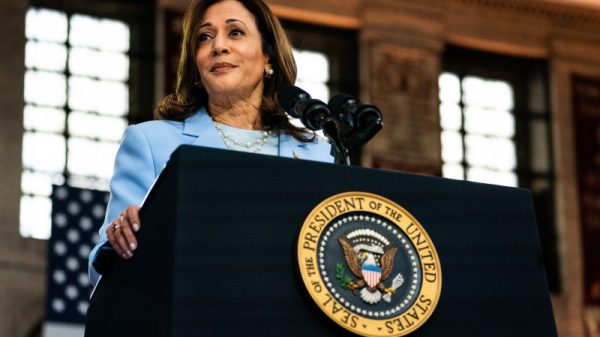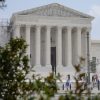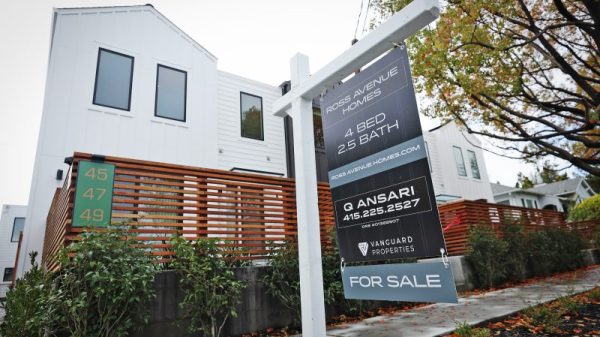Ostensibly, the Supreme Court’s decision in 303 Creative v. Elenis was predicated on free speech. Web designer Lorie Smith didn’t want to have to make wedding websites for same-sex couples and wanted to announce that disinclination as she offered her services. The court decided that she could do so, equating her position to a nonreligious artist who might want to decline a commission from an evangelical customer. The decision, they suggested, was about Smith’s being compelled to endorse speech with which she didn’t agree.
But it is important that Smith never actually had any clients seeking her services for a same-sex wedding — including the person identified by Smith’s attorneys as the case worked its way through the courts. This was inherently a case in which a devout Christian sought protection to be able to proactively declare her opposition to same-sex marriage. It is a case that the Supreme Court’s distinctly conservative majority decided should be elevated for their consideration and then one in which they granted the petitioner the right to do what she wanted.
It was, as I wrote on Friday, a case that fell squarely into the recent pattern of right-wing backlash against the visibility of LGBTQ+ Americans, however it was framed. And it is in that sense that Transportation Secretary Pete Buttigieg’s frustrated criticism of the decision on Sunday was accurate.
Buttigieg was being interviewed on CBS’s “Face the Nation.” He is the first openly gay person confirmed as a Cabinet secretary, which obviously framed his response.
“As I’m getting ready to go back to my husband and our twins for the rest of this morning, I’m thinking about the fact that the existence of our family is only a reality because of a one-vote margin on the Supreme Court a few years ago,” he said. “These are the kinds of things that are at stake, and we have a Supreme Court that is very much out of step with how most Americans view these issues.”
The court, under the leadership of Chief Justice John G. Roberts Jr., is eager to present itself as above consideration of things like public opinion. This is the utility of the framing of Creative; the contest between religious belief and LGBTQ+ protections is one about free speech, an unobjectionable component of the court’s purview. In that light, Buttigieg is painting with too broad a brush.
There’s no question, though, that the acceptance of the case and the decision mark a regression that comports with the goals of an active portion of the political right.
In November, the Senate considered legislation that would backstop the Supreme Court case on same-sex marriage — the 2015 decision in Obergefell v. Hodges mentioned by Buttigieg — in case the court changed its mind. (This was soon after the decision overturning Roe v. Wade was released, yielding a concurring opinion from Justice Clarence Thomas suggesting that Obergefell be revisited.) Despite broad support for same-sex marriage, a number of Republican senators opposed the idea. Why? As I wrote then, it was clearly in part because opposition to same-sex marriage is much stronger the further right you move on the partisan spectrum.
You can see that in the 2020 American National Election Studies research.
If we overlay ideology, it becomes more obvious: The most conservative, strongest Republicans are most hostile to same-sex marriage.
That the senators opposed formalizing the legality of same-sex marriage was in part a function of their own politics. It was also almost certainly a function of the fact that more-conservative Republicans are more likely to vote in primary elections and to contribute to campaigns.
Same-sex marriage also sees far less support from evangelical Americans than those who don’t identify as fundamentalist or evangelical.
That data is from 2020. Gallup has more recent numbers, showing that, just this year, the belief that same-sex relationships are morally acceptable has dropped, particularly among Republicans. Republicans are now less likely to say that same-sex relations are morally acceptable than they were to say so in 2015, when Obergefell was decided.
What’s interesting about 303 Creative is that it inverts the hierarchy of oppression. It has been presented as a religious designer seeking to take a stand against a widely held belief with which she doesn’t agree. But she is also a member of a group — conservative Christian Americans — that is obviously larger than the country’s LGBTQ+ population. (Gallup puts the LGBT community at 7 percent of the population; analysis of the General Social Survey puts the conservative Christian population at about a quarter of Americans.)
For Buttigieg, the decision was personal, as was Obergefell (obviously for somewhat different reasons). He has experience in the ways openly LGBTQ+ Americans are disadvantaged, disadvantages that are often dramatically sharper than that experienced by Smith when she couldn’t openly state her opposition to same-sex marriage.
Again, it wasn’t just the decision that informs the court’s position here. It was that they determined the case was worth hearing at all. It was the elevation of this request for protection by Smith at this time.
Buttigieg’s complaint that the decision doesn’t mirror public opinion seems to be true (two-thirds of Americans favor the Obergefell decision, though only 1 in 13 Americans identify as LGBT), but the court’s role is not to mirror opinion. Many of its decisions preceded public acceptance by a wide margin.
In this case, though, the court’s decision aligns with the position of a subset of the population opposed to the court’s extension of rights to LGBTQ+ Americans — at a moment when that opposition is particularly pronounced.

















